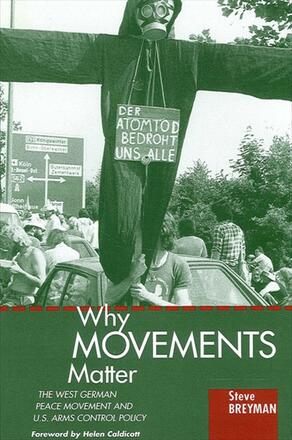
Why Movements Matter
The West German Peace Movement and U.S. Arms Control Policy
Alternative formats available from:
Details the West German peace movement's impact on German, U. S., and NATO politics and security dynamics in the 1980s.
Description
Why Movements Matter is a provocative account of how the Reagan administration relented to pressures created by international peace movements during one of the most dangerous episodes of the Cold War. Breyman provides the first systematic account of the West German anti-missile movement, among the most important citizen mobilizations of postwar Western history. Contrary to conventional wisdom Breyman offers compelling evidence that peace movements, rather than any escalation of Cold War spending or rhetorical belligerence, hastened the demise of the Cold War.
The product of extensive research, Why Movements Matter advances social movement theory and the political sociology of peace movements, expands our understanding of the interaction of political parties and political movements, explores the links between public opinion and organized dissent, and provides an assessment of a movement whose immediate impact shook the halls of power in Washington and Moscow, yet also had a deep and lasting influence on politics, culture, and society.
Steve Breyman is Associate Professor of Science and Technology Studies and Director, Ecological Economics at Rensselaer Polytechnic Institute, and is the author of Movement Genesis: Social Movement Theory and the West German Peace Movement.
Reviews
"This is a brilliant, provocative book, crossing disciplinary boundaries. It makes a powerful case on a subject of considerable importance. " — Lawrence S. Wittner, author of The Struggle Against the Bomb
"Never before have I seen the politics of negotiations and the politics of the street put together this well. It adds new perspective to a set of events that have been much-analyzed over the last ten to fifteen years. It does so ranging across both administrative politics and movement politics, and covering the dynamic of movement demand and political response in both Germany and the U. S." — Thomas Rochon, author of Culture Moves: Ideas, Activism, and Changing Values